In Nigeria, whether to sell existing stock of national assets or not has been the debate for the past thirty or more years since the Ibrahim Babangida regime started it all in 1985. In 2016, Nigeria is back in that debate. What does our memory of the debates since then add to the current phase of the debate over whether to sell existing national assets or not to sell? And which might be the ten most remarkable interventions which might be said to define the entire debate? Here is an attempt:
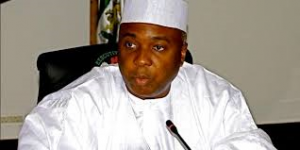
Bukola Saraki
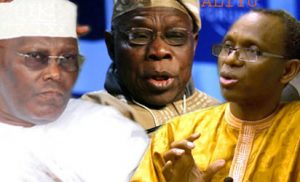
Obasanjo,Atiku & el-Rufai
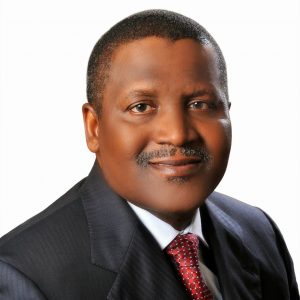
Aliko Dangote
Prof. Bayo Olukoshi:
“Workers, market women, students, religious leaders and associations, youth organisations, professional groups including university lecturers as well as roadsides mechanics, the Manufacturers Association of Nigeria (MAN) and even elements of the armed forces such as the men of the 82 Airborne Battalion openly voiced their opposition to the Fund and its conditionality clauses. It was a genuinely popular debate in which a clear majority of participants took a stand against the IMF and thereby compelled the government to announce on 12 December, 1985 that it had taken a decision to reject the loan”
–Reportage of the SAP Debate in the 1993 book Politics of Structural Adjustment in Nigeria
Obasanjo
“A close look at the development models that have been applied in Africa would also be necessary as we chart the new course forward. Africa has, in the past, been subjected to numerous externally designed models as a panacea to its economic problems over the last three decades. The Bretton Woods institutions with the support of the international community have designed some of these models. However, in spite of the good intentions of their authors, these experiments have not achieved the desired results, in some cases, the results had causes so much pains and social upheavals that their local advocates – politicians, administrators, and even academia – have had to be branded foreign lackeys”
Former President Obasanjo navigating his ways on SAP in a July 2001 speech to the High level segment of the Economic and Social Council (ECOSOC) Substantive Session, UN, Geneva
Alhaji Muazu Hamisu Shira
“Our people desire to see their country as Africa’s most industrialised nation with industries producing very high quality and equally affordable goods within the reach of the common man, providing employment to the teeming youths. And our membership of WTO is apparently giving against these objectives”
-Chairman of the House Committee on Industries justifying threat to canvas Nigeria’s withdrawal from the World Trade Organisation so as to salvage “the country’s local industries which cannot compete favourably as a result of global liberalisation of trade”
Chief Fajemirokun:
“Government Has No Business in Business”
The Chairman of Zerox Nigeria Ltd telling The Guardian on Sunday then, (2/3/1997, p.C3) that “to turn the economy around, let government get out of business and face their policy making, regulatory and supervisory functions squarely – let us see total privatisation of those government agencies like NEPA, NITEL, NNPC and there should be a lot of transparency to make the economic environment conducive for new business to come in and old ones to foster”
Atiku Abubakar:
“the ultimate solution to fuel scarcity”
–Then Vice-President at the 22nd Kaduna Trade Fair in 2001 (Sunday Punch, 18/2/2001)
Nasir el-Rufai:
“We are selling all the refineries, the gas companies, the pipelines and petrochemicals at the same time”
– Nasir El-Rufai at New Nigerian Parley (25/9/2000) where he said NEPA, NITEL and NNPC and their subsidiaries would all be privatised.
…
“We’ll Save Nigerians the Evils of Public Enterprises”
Nasir El-Rufai, (Nigerian Tribune, 25/5/2001, p.8)
Dr Peter Ozo-Eson:
“The state cannot sit back and say that the private sector will, in itself, engineer development especially in a country at a very low level of development like ours. There is a point you attain in development that you can do that but in the history of economic development, the private sector-led economy comes about only after a mature economy has been created. In the West, it became the case after they had used the developmental state and direct intervention to reach a level of development. Can you imagine the underground train in London at the time it was built if it was the private sector economy? Yet we are at the same stage in Nigeria now when private sector or the profit motif would not create the type of complexes that would be the basis of development. In particular, the type of manufacturing that will place Nigeria on competitive global map is not a job for the private sector because our private sector is also constrained by our stage of development”.
– Eson speaking in 2006 as Chief Economist of the Nigeria Labour Congress, (NLC)
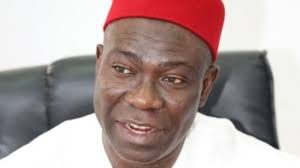
Senator Ike Ekweremadu
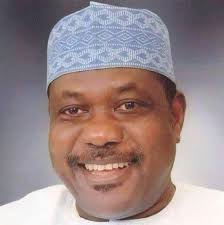
Senator George Akume
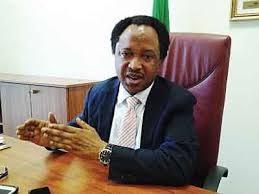
Senator Shehu Sani
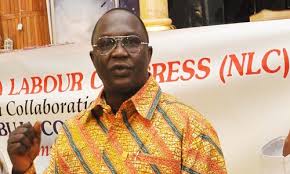
Ayuba Waba,NLC Leader
Senior Staff Association:
The Ports of Singapore and Dubai, both owned and controlled by Government have remained award-winning Ports for many consecutive years. On the other hand, Shanghai Ports in China ranks the 5th best port in the entire world in terms of management, efficiency and productivity. Thus, if the Port of Shanghai, Singapore and Dubai can operate excellently without privatisation, the Nigerian Ports authority under good and articulate management is also capable of achieving optimum productivity without succumbing to the evil of privatisation or concessioning”
Senior Staff Association explaining in an advertorial why the ports should not be privatised, (29/8/2000)
Ray Bush & Morris Szeftel:
Neo-liberal economists supplied or imposed by the IMF or bilateral donors have been settling budgets, determining fiscal policy, setting exchange rates and planning privatisation measures for more than 20 years in parts of Africa. Economists seconded from the IMF and the World Bank to African finance, development planning and trade ministries have long been setting government targets and hence national horizons. The evidence that their programmes have been a disaster is overwhelming.
Two British academics in the piece “Commentary: Taking Leave of Twentieth Century” published in 1995 in Review of African Political Economy, No.65
Senator Bukola Saraki
“The problem is that we are in a situation where the forex inflow, and the forex inflow comes from different sources, it comes from government’s sale of crude oil, it comes from export proceeds, it comes from foreigners and Nigerians investing in companies in Nigeria, it comes from hedge funds that believe in the market, that invest in our bonds, treasury bills, and stock market. It even comes from Nigerians that have money abroad, that bring money in. I think I have counted five. Out of these five, only one is functioning today – that is government money. All these other four have dried up…So your FX inflow has gone down, your reserve is low, your demand is still up there, there is no confidence in the economy that will encourage these four sectors to bring money in, either because they believe the naira has not yet found its bottom, so if I bring in my FX, I am going to lose straight away, so for as long that that continues, you are not going to see any inflow”
…
“We set up an ad hoc committee to put together all the recommendations that were put forward by different senators. Our plan is that on Tuesday, we will now take them and be able to pass resolutions on some of those issues and communicate those resolutions to the executive”
Senator Saraki in a plethora of ‘strategic communication’ in the politics of National assets sales




























